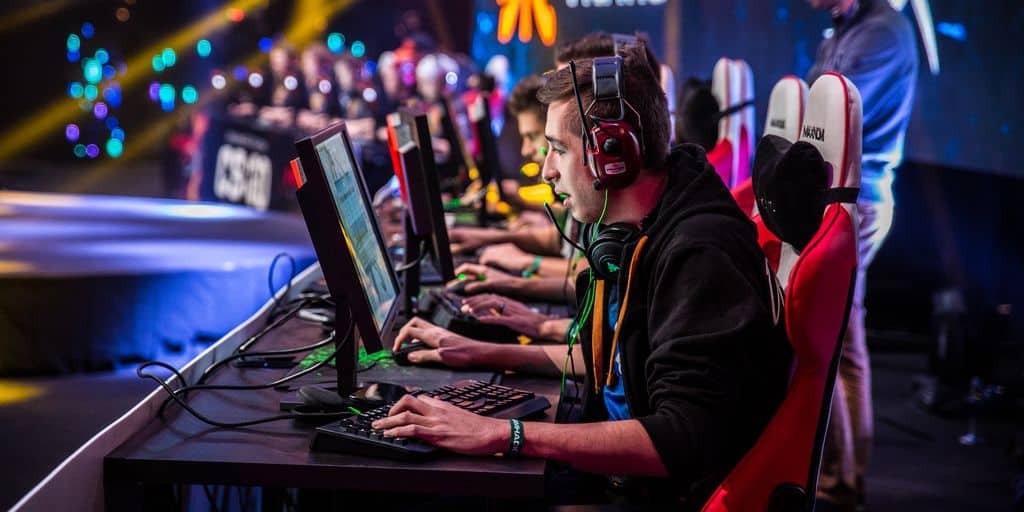The world of gaming has evolved dramatically over the years, moving beyond mere entertainment and becoming a multi-billion-dollar industry. One significant aspect that has contributed to this growth is the emergence of virtual economies within online gaming. These virtual economies, characterized by in-game currencies, trade systems, and marketplaces, have real-world financial implications that extend far beyond the gaming realm. In this article, we will delve into the concept of virtual economies, examine their financial impact, and explore the ways in which they have transformed the gaming landscape. Discover hidden treasures and embark on epic quests in online gaming at fun88.
Contents
Defining Virtual Economies
Virtual economies refer to the economic systems that exist within online games. In these virtual worlds, players engage in various activities such as completing quests, defeating enemies, or participating in player-versus-player battles to earn virtual currencies. These currencies can then be used to purchase in-game items, such as weapons, armor, or cosmetic enhancements, from virtual marketplaces.

The Financial Significance
Virtual economies have grown to such an extent that they now hold significant financial value. In-game currencies, such as World of Warcraft’s gold or EVE Online’s Interstellar Kredits, have real-world exchange rates and can be bought and sold for actual money on third-party platforms. This has created a unique market where players can monetize their in-game efforts and earn a living through trading virtual assets.
The Rise of Professional Gaming
The emergence of virtual economies has given rise to a new profession: professional gaming. Skilled players can now earn substantial amounts of money by participating in tournaments, streaming their gameplay on platforms like Twitch, or selling rare in-game items. These professional gamers often develop a loyal fan base and attract sponsorships from gaming companies, further increasing their earning potential. In fact, some professional gamers have become millionaires through their virtual exploits.
Microtransactions and In-Game Purchases
Microtransactions, which involve the purchase of virtual goods or in-game currency using real money, have become a standard practice in many online games. While controversial, these transactions have proven to be highly lucrative for game developers. Popular games like Fortnite and League of Legends generate billions of dollars in revenue each year primarily through the sale of cosmetic items and battle passes. This economic model has allowed developers to offer games for free, while still profiting from player engagement.
Player-to-Player Trading
Another aspect of virtual economies is player-to-player trading. In many games, players can trade their virtual assets directly with each other, creating a thriving secondary market. This form of trading often involves rare and valuable items, which can fetch substantial prices. Online platforms have emerged to facilitate these transactions, enabling players to buy, sell, and trade virtual goods, sometimes for significant amounts of real-world money.
Economic Challenges and Regulation
The financial impact of virtual economies has brought about several challenges and regulatory concerns. The unregulated nature of these markets raises issues related to fraud, money laundering, and the protection of players’ rights. Some governments have taken steps to regulate virtual economies and impose taxes on virtual transactions. For instance, China has implemented regulations requiring game developers to disclose the probabilities of obtaining rare items from loot boxes, a popular form of in-game random item purchases.
Real-World Implications
The influence of virtual economies is not limited to the gaming community alone. The growth of professional gaming has led to the development of a robust esports industry, which includes sponsorships, advertising, and media coverage. Esports events now attract millions of viewers and generate substantial revenue, transforming gaming into a spectator sport.
Moreover, virtual economies have inspired the concept of non-fungible tokens (NFTs). NFTs are unique digital assets that can represent ownership of in-game items, artwork, or other digital content. These tokens have gained significant attention, with some NFTs selling for millions of dollars. The concept has extended beyond gaming, with artists and creators exploring the potential of NFTs to monetize their work.
Conclusion
Virtual economies have revolutionized the gaming landscape, transforming it into a multi-billion-dollar industry with significant financial implications. The rise of professional gaming, the prevalence of microtransactions, and the emergence of player-to-player trading have all contributed to this phenomenon. As virtual economies continue to evolve, it is essential for regulators, game developers, and players to strike a balance between economic opportunities and addressing the associated challenges. The financial impact of online gaming is likely to continue growing, shaping not only the gaming industry but also the broader digital economy.



